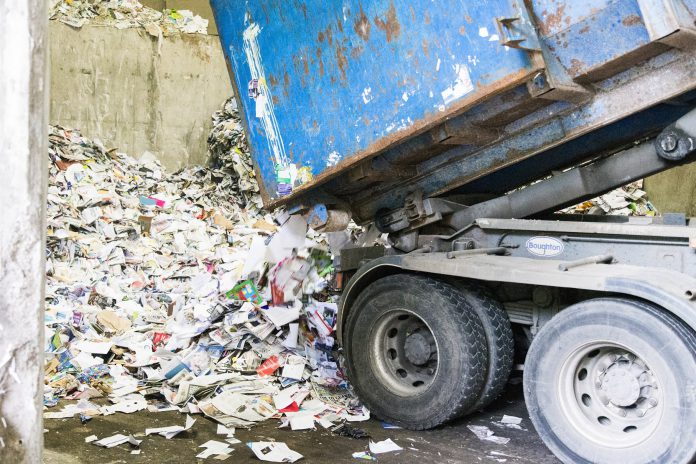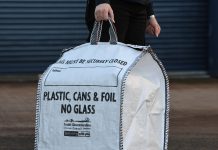New contracts have been awarded with two regional companies to manage residual waste, that is material which cannot be recycled or otherwise reused. The contracts will ensure the vast majority of such waste is diverted from landfill and instead used to generate energy, with the potential to power more than 120,000 homes. A third contract has also been awarded for processing bulky residual waste.
Recycling rates are increasing right across the West of England region, which covers the Bath & North East Somerset, Bristol City, North Somerset and South Gloucestershire Council areas, but there are materials that it is not possible to recycle or re-purpose. Until now, the four Authorities have worked jointly to dispose of this via energy recovery facilities in Scandinavia, but the new approach will mean it is managed locally, saving money and transport-related emissions.
The contracts will see Viridor and Suez disposing of 120,000 and 50,000 tonnes of residual waste each year respectively, while ETM will manage the disposal of 45,500 tonnes of bulky waste each year.
The new arrangements will ensure that all of this waste is managed in the South West region and that the electricity produced feeds into the power grid locally. By reducing transport and other costs, it is expected that across the four Local Authorities will save more than £300,000 each year.
The new contracts will use two Energy from Waste (EFW) plants in Avonmouth to use the waste as a fuel to generate electricity and potentially energy for heating, using new technology that incinerates pre-treated, non-recyclable waste at high temperatures under carefully controlled conditions.
EFW technology is able to divert more waste from landfill than the current Mechanical Biological Treatment (MBT) disposal method and will help to reduce the amount sent to landfill across the region. The new contracts require the new contractors to achieve at least a 90 per cent diversion from landfill for residual waste collected at the kerbside and 80 per cent diversion for Bulky waste and that collected at council recycling centres.
Going hand in hand with ever-increasing levels of recycling, the new contracts will have a positive impact on the councils’ carbon footprints and environmental impact.
Councillor David Wood, cabinet member for Climate Emergency and Neighbourhoods at Bath & North East Somerset Council, said: “It’s terrible in this day and age that we send our rubbish all the way to the continent to be incinerated; with Climate Change at the top of the agenda we need to be more careful with our carbon footprint. Sending so much rubbish to landfill is also the worst possible thing we can do. Landfilled rubbish creates methane that worsens Climate Change. These changes will reduce the amount of waste sent to landfill which is good news for residents of Bath and North East Somerset and great news for the environment.”
Councillor Steve Pearce, Cabinet Member for Waste Regulatory Services and Commercialisation at Bristol City Council said: “These new contracts show how as a region we can provide cleaner energy from residual waste and save taxpayer money in doing so. Our agreements with Viridor and Suez are an efficient and greener approach to reconstituting unusable waste into energy.
“Bristol is already the top English core city for recycling our waste. By preventing residual waste from going to landfill and incinerating it at our EFW facilities, we can produce electricity for over 120,000 homes. Bristol is committed to limiting the negative impact we have on our environment and achieving carbon neutrality by 2030”.
Councillor Bridget Petty, Executive Member for Environment and Climate Emergency at North Somerset Council said: “Our residents have helped us to achieve some of the best recycling rates in the country, and our focus will always be on reduce, reuse and recycle. But for what’s left over this is a great step forward, helping us to reduce our carbon footprint and impact on the planet.”
Councillor Rachael Hunt, Cabinet Member for Communities at South Gloucestershire Council said: “We are committed to continuing to improve our environmental performance; increasing the amount we recycle and reducing the amount of waste we send to landfill. Our residents have really risen to the challenges we have set down in our Waste Strategy and we are working together to make our area cleaner and greener.
“This new contract will help us manage and make the best use of the waste that can’t be recycled, which will now be used to generate energy locally, reduce transport-related emissions and save the council money.”
Each of the Councils are committed to reducing waste and work collaboratively across the region to reduce their environmental impact. Measures taken by the individual councils include reducing single use items such as plastic cups, bottles and disposable nappies; introducing smaller residual waste bins to encourage more recycling; and campaigns to reduce food waste.









